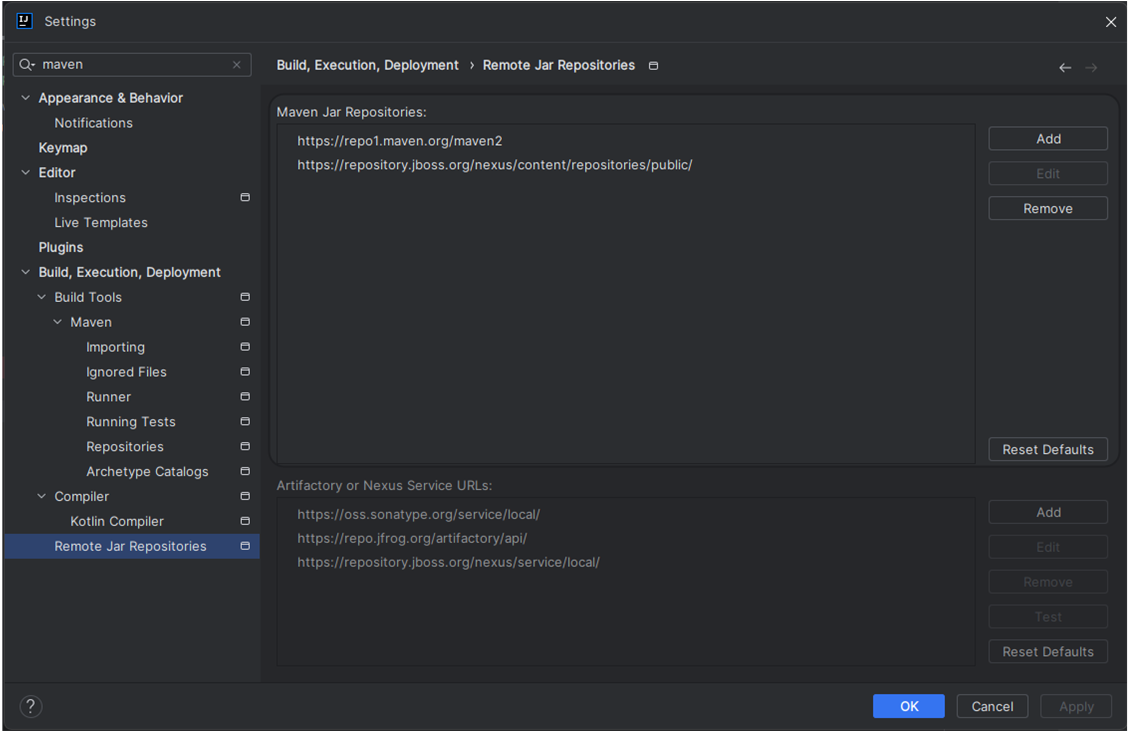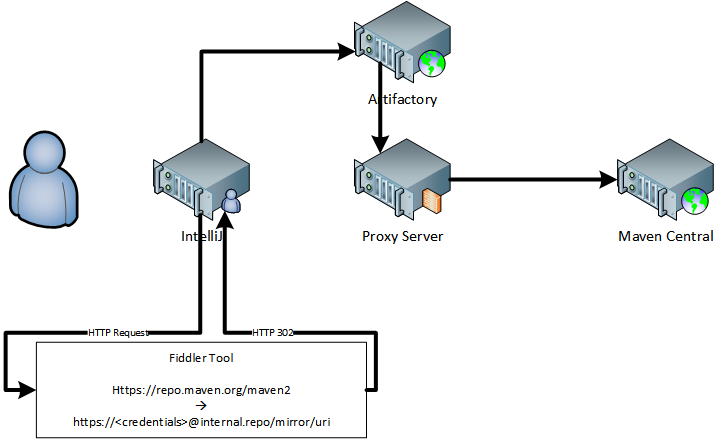TLDR;
If you are blocked getting to maven central when first using Kotlin Notebooks because of company firewalls, you can use a tool like Fiddler Tool to redirect to a different network location.
Kotlin Notebooks
Kotlin Notebooks are a JDK based environment that brings the Python based Jupyter Notebooks expressiveness to IntelliJ.
From the blog post announcing the plugin, it looks like this:
At home, the installation of jar files looked like this:
I played around with it at home, but I couldn't use it at work. Many companies, mine included, do not allow software components to be used when downloaded directly from the internet.
In my companies case, we use a product called Artifactory, which allows you to mirror the content from Maven Central while still applying policies like CVE scanning, tracking, etc.
The way it should work
IntelliJ, as one of the leading IDE's, generally supports this quite well. In fact, there is a whole setting page dedicated to dealing with just this situation:
If I were at work, this settings page would have configuration that pointed to where I'm allowed to get Maven Central jar files.
Unfortunately, the client/server configuration of the Kotlin Notebook plugin doesn't seem to honor this page and tries to directly access Maven Central.
The workaround
Because I have to inject my personal credentials into the request for jar files, a simple redirect generated by the TLS connection would not work. I actually have to be able to read and adjust the layer 7 HTTPS traffic. One of my favorite tools to do that is called Fiddler . Not only is it able to act as a proxy on my PC, it's has a redirect option that is easy to use.
Fiddler has to have the option to decrypt TLS/SSL turned on in order to view the layer 7 HTTP request. This means that you will receive multiple "Do you trust this certificate?" questions from IntelliJ.
You will now have TLS certificates trusted in IntelliJ's cacerts file (usually found at C:\Users\<username>\AppData\Roaming\JetBrains\IntelliJIdea2023.3\ssl\cacerts) that you DO NOT WANT to keep trusting. Delete the entries with Fiddler in the name using keytool, reset your proxy back to not use 127.0.0.1:8888 and you should be on your way.





Comments
Post a Comment